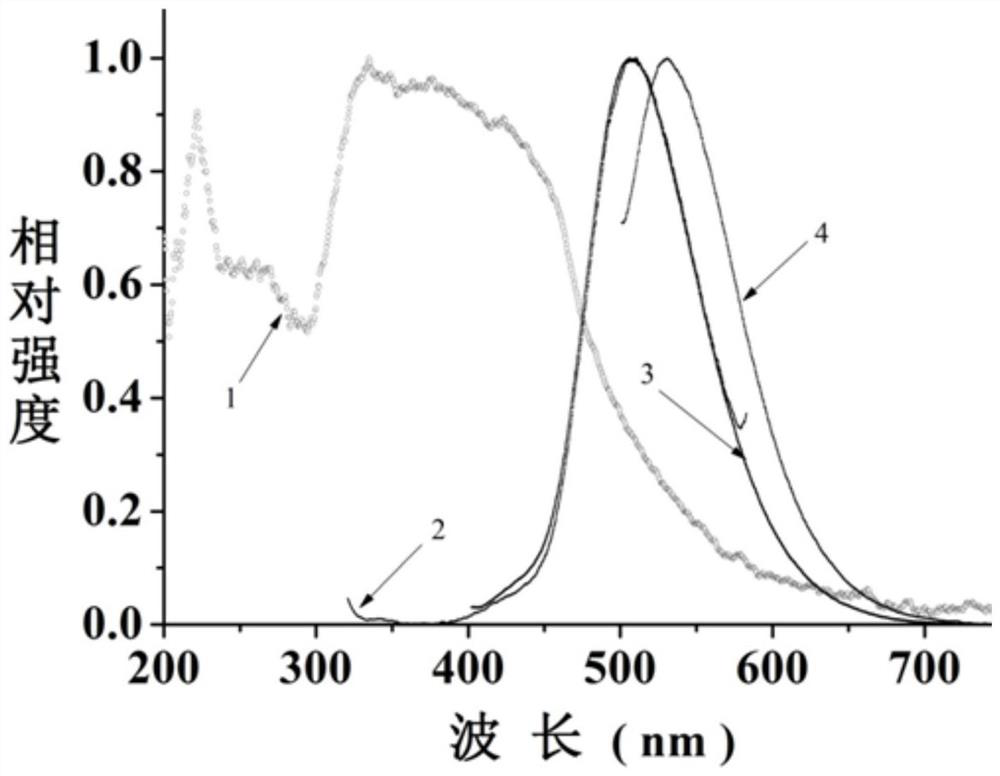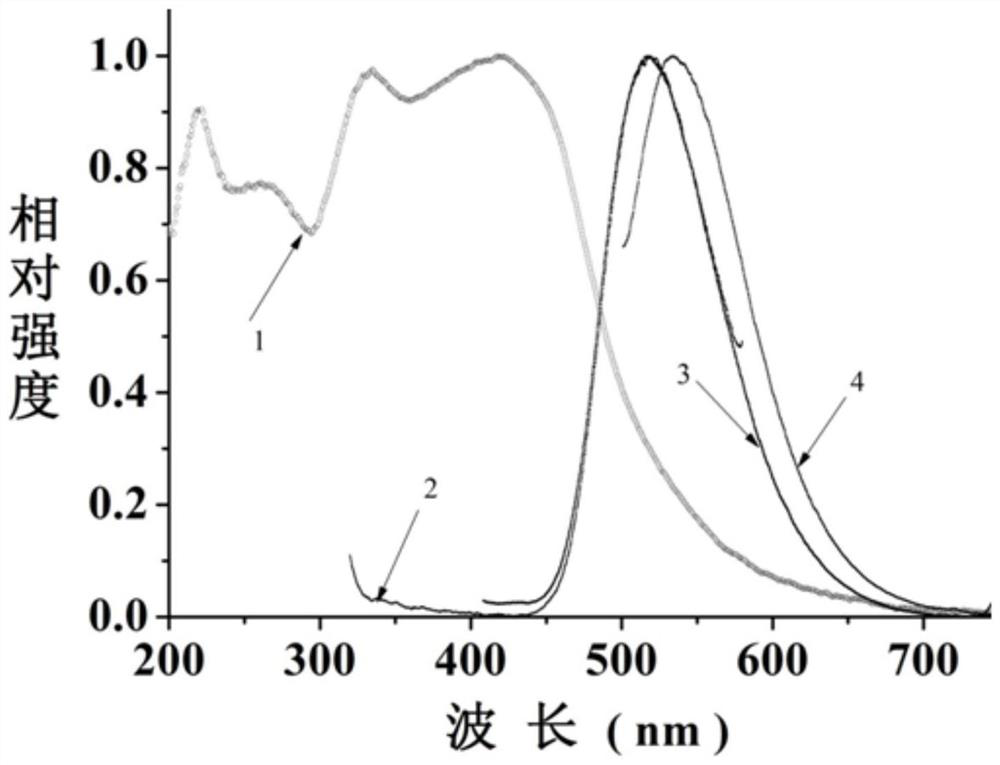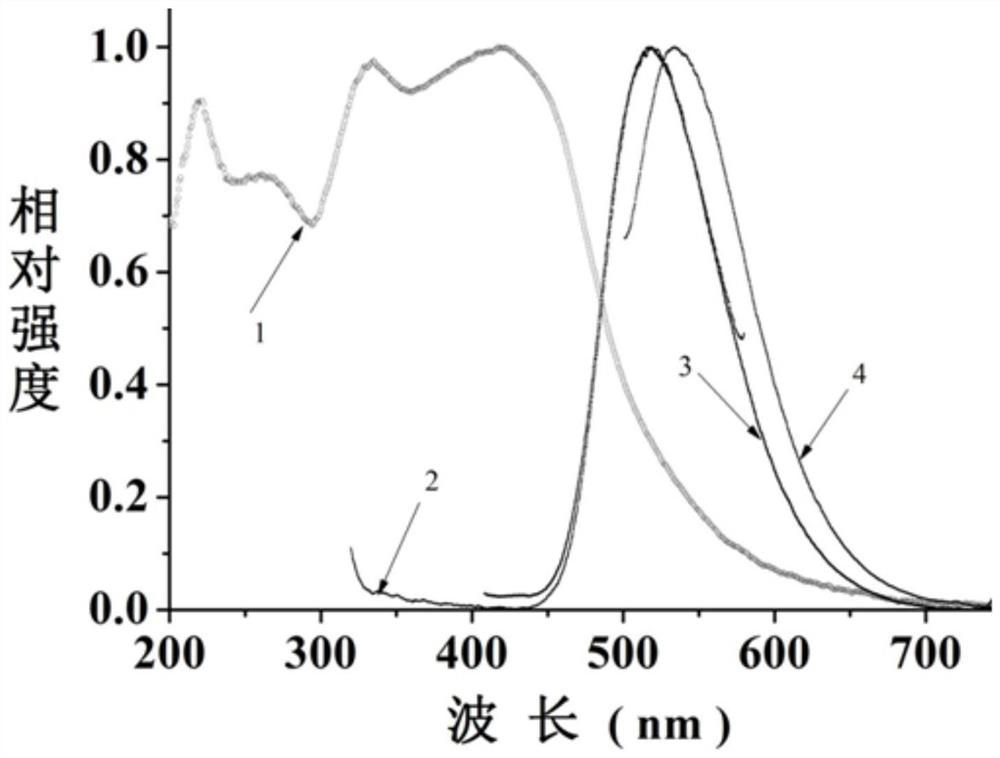Preparation and application of a solid-state fluorescent carbon quantum dot material
A carbon quantum dot and fluorescence technology, which is applied in the field of nano-luminescent material preparation, can solve problems such as difficulty in synthesis, and achieve the effects of wide sources, low cost and simple device requirements.
- Summary
- Abstract
- Description
- Claims
- Application Information
AI Technical Summary
Problems solved by technology
Method used
Image
Examples
Embodiment 1
[0024] Embodiment 1: the synthesis of a kind of solid fluorescent carbon quantum dot comprises the following steps:
[0025] S1, take by weighing 3 g of citric acid, 3 g of urea, and 1.5 g of sodium carbonate, and put them into a beaker;
[0026] S2. Add 9 mL of distilled water into a beaker with citric acid and urea to form a transparent solution, wherein the citric acid has a molecular weight of 192.12, urea has a molecular weight of 60.06, and the sodium carbonate has a molecular weight of 105.99.
[0027] S3. Place the beaker in a microwave oven, select medium-high heat, take it out after heating for 5 minutes, and the obtained product is solid fluorescent carbon quantum dots. figure 1 It is the solid ultraviolet absorption and solid fluorescence emission diagrams of the solid fluorescent carbon quantum dots prepared in Example 1 of the present invention. In this figure, 1, 2, 3, and 4 are respectively solid ultraviolet absorption and excitation wavelengths of 300nm, 380nm...
Embodiment 2
[0028] Example 2: The synthesis of a solid fluorescent carbon quantum dot, the preparation conditions are basically the same as in Example 1, except that in step S3, the heating time in the microwave oven is 4 minutes.
Embodiment 3
[0029] Example 3: The synthesis of a solid fluorescent carbon quantum dot, the preparation conditions are basically the same as in Example 1, except that in step S3, the heating time in a microwave oven is 6 minutes.
PUM
| Property | Measurement | Unit |
|---|---|---|
| particle diameter | aaaaa | aaaaa |
| emission peak | aaaaa | aaaaa |
Abstract
Description
Claims
Application Information
 Login to View More
Login to View More - R&D
- Intellectual Property
- Life Sciences
- Materials
- Tech Scout
- Unparalleled Data Quality
- Higher Quality Content
- 60% Fewer Hallucinations
Browse by: Latest US Patents, China's latest patents, Technical Efficacy Thesaurus, Application Domain, Technology Topic, Popular Technical Reports.
© 2025 PatSnap. All rights reserved.Legal|Privacy policy|Modern Slavery Act Transparency Statement|Sitemap|About US| Contact US: help@patsnap.com



